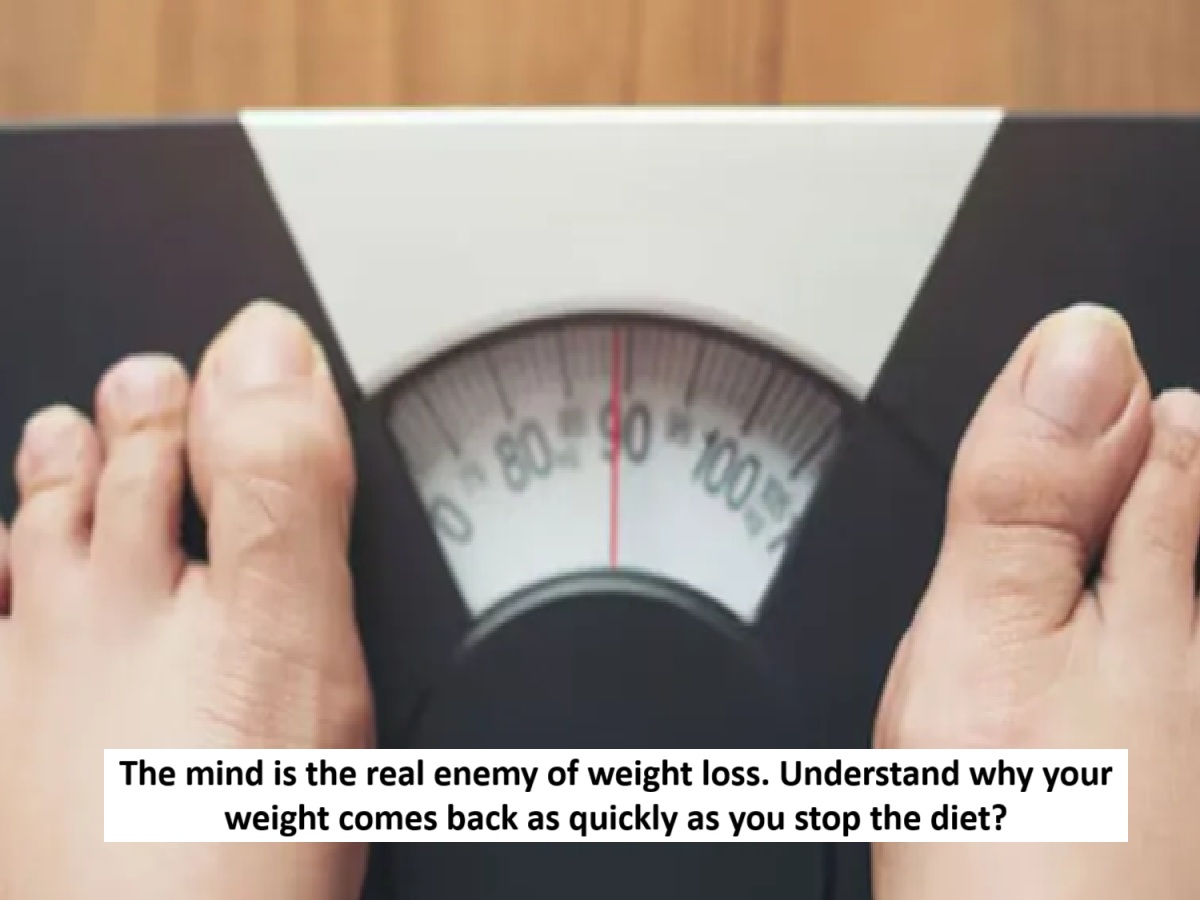
News Topical, Digital Desk : Has it ever happened that you started a diet, lost a few pounds, but then quickly gained back the weight? Many people attribute this to a lack of self-control, but science suggests that the real culprit isn't your willpower, but your brain (Brain's Role in Weight Loss).
Yes, researchers at the University of Copenhagen say that weight loss is not a battle to maintain self-control, but a neurobiological war, in which the brain often works against weight loss.
Why does the brain not allow weight loss?
All of this is a legacy from our ancestors. Millions of years ago, when food wasn't always available, the body began storing fat as a protective shield. So, lack of food meant danger, fat meant protection. Even though food is readily available today, the brain still operates on the old system. So, as soon as you try to lose weight, the brain sounds a warning alarm.
Its effect is visible in three ways-
- Hunger increases – As soon as you start dieting, hormones like ghrelin increase, which leads to constant hunger.
- Energy expenditure decreases – The body tries to conserve calories, meaning you burn fewer calories than before.
- The brain "remembers" the old weight— this is the body's set-point weight. The brain tries to get the weight back to that weight, no matter how hard you try.
This is why losing weight isn't as difficult as maintaining it, because the brain repeatedly tries to get the body back to its previous weight.
Are medicines like Wegovy and Monjaro a permanent cure?
Newer weight loss medications, such as Wegovy and Monjaro, suppress appetite by mimicking gut hormones. This may help with weight loss, but once treatment is stopped, the brain reverts to its old programming. Hunger returns, energy expenditure decreases, and weight gradually returns. Therefore, weight loss medications are not a permanent solution.
Scientists are now working on a therapy that can reset the brain's weight memory, or set-point, so that the body begins to perceive the new weight as "safe."
By what age does the ability to control weight develop?
Research shows that our eating habits and ability to control weight develop from pregnancy to around age 7. During this time, the brain learns when we feel hungry, how much to eat, and how much fat the body will store. The seeds of obesity are sown in childhood. If proper eating habits and eating patterns are developed in the early years, it becomes easier to maintain weight control later on.
Weight loss is a battle between the brain, hormones, and biology. Our brains strive to maintain a stable weight for safety, even when food is not available. Fortunately, scientists are increasingly understanding how the brain controls weight. In the future, therapies may be possible that could reset the brain's weight-setting system, making weight loss not only easier but also permanent.
Read More: Does your face suddenly swell? A doctor explains the possible cause.
--Advertisement--

 Share
Share



